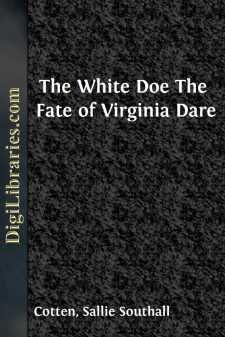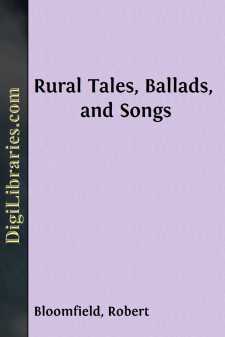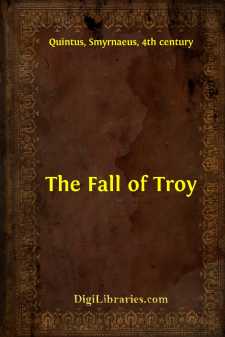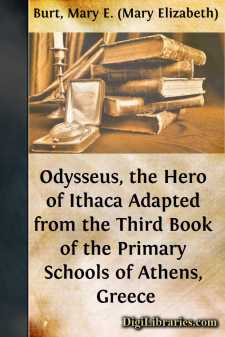Poetry Books
Sort by:
by:
Various
PART I PUPPYHOOD "What other nature yours than of a child Whose dumbness finds a voice mighty to call, In wordless pity, to the souls of all, Whose lives I turn to profit, and whose mute And constant friendship links the man and brute?" Still half in dream, upon the stair I hearA patter coming nearer and more near,And then upon my chamber doorA gentle tapping,For dogs, though proud, are...
more...
by:
John Hartley
Th' Better Part. A poor owd man wi' tott'ring gait,Wi' body bent, and snowy pate,Aw met one day;—An' daan o' th' rooad side grassy banksHe sat to rest his weary shanks;An' aw, to wile away my time,O'th' neighbouring hillock did recline,An' bade "gooid day." Said aw, "Owd friend, pray tell me true,If in your heart yo niver rueThe time...
more...
FOREWORD In presenting a loyal and venerable ex-slave as an artless exponent of freedom, freedom of conduct as well as of speech, the author of this trivial volume is perhaps not composing an individual so truly as individualizing a composite, if the expression will pass. The grizzled brown dispenser of homely admonitions is a figure not unfamiliar to those who have "moved in plantation...
more...
FORGOTTEN FACTS AND FANCIESOF AMERICAN HISTORY AS civilization advances there develops in the heart of man a higher appreciation of the past, and the deeds of preceding generations come to be viewed with a calm criticism which denudes those deeds of false splendor and increases the lustre of real accomplishment. Man cannot see into the future and acquire the prescience of coming events which would make...
more...
by:
Norman Gale
OILING. (A Song In and Out of Season.) Excuse me, Sweetheart, if I smear,With wisdom learnt from ancient teachers,Now winter time once more is here,This grease upon your lengthy features!Behaving thus, your loyal friendNo whit encourages deception:Believe me, Fairest, in the endThis oil will better your complexion.Fairest, believe! Did you imagine in the bagTo sleep the sleep of Rip Van Winkle,Removed...
more...
by:
William Combe
Too long have Britain’s sons with proud disdainSurvey’d the gay Patrician’s titled train,Their various merit scann’d with eye severe,Nor learn’d to know the peasant from the peer:At length the Gothic ignorance is o’er,And vulgar brows shall scowl on LORDS no more;Commons shall shrink at each ennobled nod,And ev’ry lordling shine a demigod:By CRAVEN taught, the humbler herd shall know,How...
more...
Difficulties—Consent. 'Night will come on; when seated snug,'And you've perhaps begun some tale,'Can you then leave your dear stone mug;'Leave all the folks, and all the Ale?' 'Ay, Kate, I wool;—because I know,'Though time has been we both could run,'Such days are gone and over now;—'I only mean to see the fun.' She straight slipp'd off...
more...
by:
William Barnes
THE SPRING. When wintry weather's all a-done, An' brooks do sparkle in the zun, An' nâisy-buildèn rooks do vlee Wi' sticks toward their elem tree; When birds do zing, an' we can zee Upon the boughs the buds o' spring,— Then I'm as happy as a king, A-vield wi' health an' zunsheen. Vor then the cowslip's hangèn flow'r A-wetted in the zunny...
more...
Homer's "Iliad" begins towards the close of the last of the ten years of the Trojan War: its incidents extend over some fifty days only, and it ends with the burial of Hector. The things which came before and after were told by other bards, who between them narrated the whole "cycle" of the events of the war, and so were called the Cyclic Poets. Of their works none have survived;...
more...
INTRODUCTION It has long been the opinion of many of the more progressive teachers of the United States that, next to Herakles, Odysseus is the hero closest to child-life, and that the stories from the "Odyssey" are the most suitable for reading-lessons. These conclusions have been reached through independent experiments not related to educational work in foreign countries. While sojourning in...
more...











